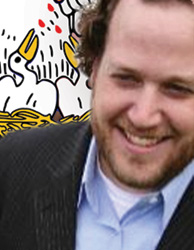More than 89,000 Louisiana residents took advantage of Louisiana’s early voting process on Saturday, Nov. 2, resulting in the largest day-one turnout state election officials had ever seen.
Secretary of State Kyle Ardoin described the results as “encouraging” and made media appearances in which he explained.
The first day total of 89,623 early voters for this runoff cycle bests the last record of 87,066 early voters for the opening day of the 2016 president election.
“This 89,623 figure was 16 percent higher than it was for the primary and 112 percent higher than it was for the 2015 runoff,” said JMC Analytics and Polling president John Couvillon.
Couvillon, a Republican, added, “For whatever the true causes were of weak Democratic early voting turnout in the primary (overconfidence about Governor Edwards’ winning in the first primary, lack of motivation from partisan Democrats to vote in the primary, or some other reason), that mistake was not repeated yesterday. In fact, Democrats had a great first day.”
Based on figures released by the Secretary of State’s Office, more than 40,000 Democrats early voted on day one, along with 35,000 Republicans and 14,000 other party voters. A total of 59,000 of those voters were white and 27,000 were African-American.
Large numbers were posted in Bossier, Caddo, East Baton Rouge and Orleans parishes, which are regions rich with Democratic voters.
Political History: A Constitutionally Elected Governor
Nov. 4 was the 52nd anniversary of a modern Louisiana governor achieving a second term thanks to constitutional law.
Prior to the late 1960s, governors of recent history were confined to a single four-year term unless they wanted to sit out an election cycle and attempt a comeback, as did Govs. Earl K. Long and Jimmie Davis. But it was the late Gov. John McKeithen who paved the way for the possibility of two terms back-to-back — terms like those later enjoyed by Govs. Edwin Edwards, Mike Foster and Bobby Jindal.
McKeithen started making a push for his “Amendment 1” in 1966 as his first term was coming to a close. He convinced the Legislature to approve the proposed amendment that spring; announced in September he would run for re-election if it was passed; and was given what he wanted by voters on Nov. 8, 1966. Passage was no easy matter. Opponents included Davis and the late Congressman Gillis Long. But they were outmatched by supporters like the AFL-CIO and most of Louisiana’s major newspapers.
After the Nov. 4, 1967, gubernatorial primary election was held, no runoff was required because Republicans failed to field a candidate to take on McKeithen. Freshman Congressman John Rarick, an Indiana transplant who called St. Francisville home, attempted to capture the Democratic nomination, but McKeithen’s country ways and trademark “Won’t you ‘hep’ me?” won voters over.
McKeithen died on June 4, 1999, just months before Foster became Louisiana’s next constitutionally mandated two-term governor. On his tombstone are the following words, excerpted from a speech McKeithen delivered during his first bid for governor during the 1963-64 election cycle:
“I wasn’t born to material wealth, nor do I have claim to an aristocratic name. But if I am elected governor, it will prove that any mother’s son can aspire to the highest political office of this state. I’ve come this far because you the people have given me your support — with all the professional politicians, power brokers and big money people fighting me every step of the way. Because I owe you so much, you can be assured when I raise my hand to take the oath of office as Governor of Louisiana, there will be a prayer in my heart that God will always guide me to do what is best for the state and all the people in it. We’ll win this race, but I need your help. Won’t you help me?”
More Political History: When Louisiana Picked The President
Even though this was our gubernatorial election cycle, and despite Bayou State enthusiast President Donald Trump not appearing on a ballot until 2020, things around here are getting downright presidential.
That was also the case here in 1876, although the District of Columbia was (as it still is) roughly 1,100 miles away from our northern state line. That was the year when our homeland found itself pulled into — and not for the last time — the orbit of national politics as a disputed presidential election hinged on ballots that were cast in Louisiana.
With incumbent President Ulysses S. Grant plagued by scandals and looking to retire after eight years in the White House, the GOP nominated then-Gov. Rutherford B. Hayes of Ohio as their standard bearer. According to his official White House biography, Hayes had the benefit of a Harvard Law degree and a chest full of Civil War decorations.
The Democrats, in turn, nominated Gov. Samuel J. Tilden of New York, a popular reformer who made a name fighting the power of the infamous Tammany Hall. (Corruption in a place called Tammany! Imagine that.)
When the votes were counted on Election Day, Tilden had clearly won the popular vote, leading Hayes by nearly 300,000 ballots out of the 8 million cast. But the count in the Electoral College was too close to call, and the returns were disputed in Louisiana, South Carolina and Florida. So tight were the numbers that all Tilden needed to claim his prize was one electoral vote. Hayes, in turn, needed the votes of all three states.
Louisiana’s politics were a mess in 1876 (again, imagine that), according to historians Jack McGuire and Walter Cowan. Two different Louisiana governors were inaugurated due to disputed returns, and each claimed to be the duly elected chief-executive.
Federal troops, still occupying the state under Reconstruction orders, regularly clashed in public with supremacist groups. Distrust was the order of the day, and uncertainty ruled the roost.
Against this troubled backdrop, a group of Louisiana Democrats, led by state Treasurer E.A. Burke, sought to cut a deal with Washington Republicans. They promised to deliver Louisiana’s 10 electoral votes to Hayes as long as their candidate, Francis T. Nicholls, would be recognized as the state’s legitimate governor. Also, the new president would have to withdraw all occupying military units and officially end Reconstruction.
Hayes and his supporters agreed to the deal, which led to Hayes taking office as the nation’s 18th president and Nicholls winning control of state government.
A Republican would not carry Louisiana in a presidential election for years — not until Dwight D. Eisenhower won a second term in 1956.
They Said It
“Don’t let the small stature scare you. I’m like a mother bear with her cubs.”
— Eddie Rispone, at a Republican women’s event in Baton Rouge Wednesday, on WVLA-TV
“There are not local races anymore. Every doctor’s office, every gas station, every barbershop has a TV in it, and eight out of ten of those in Mississippi are airing Fox News … I am hopeful that local issues such as infrastructure, public education and transportation supersede this. But the thing about Trump is, he just sucks up all the oxygen, every day.”
— Brad Chism, a Mississippi Democratic strategist, on the nation’s gubernatorial elections being influenced by President Donald Trump, in The Washington Post
“For the vast majority of Americans who are either center-left or center-right, I think about half are saying, ‘Give the guy a break.’ I think the other half are saying, ‘How in God’s name did we get here?’ And they’re paying attention.”
— U.S. Sen. John Kennedy, on the president, in The Washington Post
“One day, you’re standing with a group that will never stand with you on life but you’ll stand with on criminal justice reform. And the next day you’re standing with all pro-lifers, and everybody else is screaming at you.”
— Sen.-elect Katrina Jackson, D-Monroe, on the challenge of working with both conservatives and liberals on wide-ranging topics, in the National Catholic Reporter















Comments are closed.